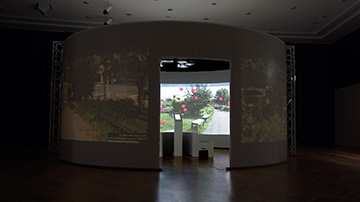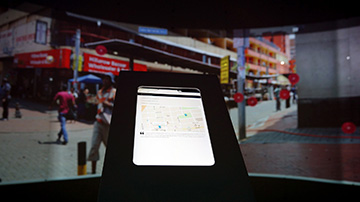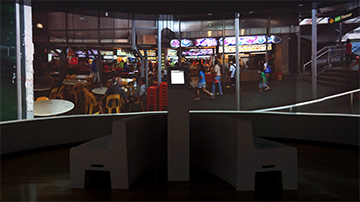Datarama
For scientists working with visual data, the limitations inherent to conventional display devices and software can impose serious constraints on data collection, analysis and presentation of findings.
With Datarama, the Max Planck Institute for the Study of Religious and Ethnic Diversity has developed a set of distinctive visual data solutions for a range of scientific applications, in order to deal with complexities and challenges of modern data worklfows.
Arising from GlobaldiverCities, a project funded by an ERC Advanced Investigator Grant, the Datarama provides an immersive projection environment allowing interactive selection and combined simultaneous handling of multiple kinds and sources of data. While the entire facility includes a large-scale 360⁰ projection surface, at the Datarama’s core is a hardware-agnostic software that allows for management, interaction and panoramic projection of diverse visual data across a broad range of devices (including conventional video projectors, tablets, Oculus Rift and other VR headsets.
In addition to benefits to scientific research and analysis, the Datarama significantly supports teaching. Lecturers are able to interrelate several kinds of materials, particularly in visual formats that are proven more effective for learning, while students are encouraged and stimulated by the immersive experience and interactive engagement with course materials.
The system also has considerable potential to enhance public understanding of science, for instance through exhibitions within public museums.





